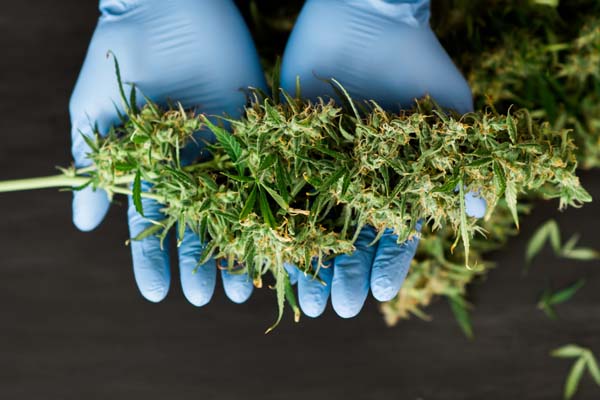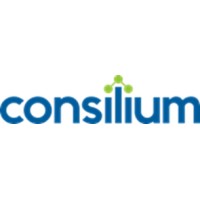
One traditional tobacco industry supplier that has recently diversified into servicing the legal cannabis business is LLFlex. With headquarters and manufacturing facilities in Louisville, Kentucky, USA, the company is a global leader in metals-based laminates for packaging and industrial solutions in the wire, cable, construction and other consumer markets. For nearly a century, LLFlex has supplied packaging materials to the tobacco industry. Its innerliner is available both laminated and coated and in a vast array of colors. The company’s innerframe offering includes plain and printed materials.
LLFlex has also been working on new packaging designs that will incorporate its laminated carton board into flip-top boxes and cartons. According to LLFlex Business Segment Director Kelley Stearman, the company sets itself apart through its long history and commitment to the tobacco industry and its willingness to make investments to service this industry. “Our reputation of high-quality materials and excellent service is second to none,” she says.
With sales offices in the U.K. and China and an extensive network of agents, LLFlex services the entire globe. Recently, the company opened a new factory in High Point, North Carolina, USA, allowing it to efficiently service the high concentration of tobacco customers in that region.
As numerous U.S. states legalized cannabis in recent years, LLFlex started exploring opportunities in that segment as well. While the market remains small compared to that for tobacco, the potential for growth is considerable. “Data shows a huge exponential increase in demand for cannabis packaging over the next five years, and we want to be part of that growth,” says Stearman.
Cannabis packaging is similar to tobacco packaging in that it requires innocuous materials that won’t impart any taste or odor on the cannabis or tobacco products. From there, however, the similarities diminish. “As we know, most cigarettes are packaged on high-speed packing lines due to the high production volume of these products,” says Stearman. “Cannabis products for the most part are still being made and packed on a much smaller scale. And the cannabis product that a consumer buys typically is in a much different format than a cigarette. Whether it’s a cannabis flower or an edible, the packaging is very different from a cigarette pack.”
Complicating things from a packaging supplier’s perspective, every U.S. state that has legalized cannabis has its own unique regulations for cannabis packaging. Some states require cannabis packaging to be reclosable, for example. One requirement, however, is common to all jurisdictions: Cannabis products must be sold in child-resistant packaging.
With its LoCRite product, LLFlex can help cannabis producers comply. LoCRite is a laminated tear-resistant board that can be used to make folding cartons with certain child resistant opening features. The tear-resistance of the board combined with the specialized opening features of the carton make the finished carton child-resistant.
The LoCRite product has been used in several cartons that have been certified as child-resistant. In developing LoCRite, LLFlex evaluated different types and gauges of films. “The film had to be printable, and we had to achieve superior bond strength in the laminate,” says Stearman. “The finished product had to be printable on both sides, foldable and scorable.” Unlike competing solutions on the market, LoCRite is available in a variety of substrates. It can be made with various paper and board calipers and with Forest Stewardship Council-certified materials. The film component of LoCRite can be clear or metalized, including decorative options such as custom holographics. LLFlex has been supplying LoCRite for cannabis applications for more than three years and partnered with one of its key customers to develop a CR-certified carton for medical or recreational marijuana products. The folding carton is composed of LLFlex’s LoCRite board and is certified child-resistant in compliance with the U.S. Consumer Product Safety Commission (CPSC) 16 CFR 1700.20 testing protocol.
For the time being, cannabis packaging accounts for a relatively small portion of LLFlex’s business portfolio. The market is likely to grow, however—and when it does, LLFlex will be ready. “We have several projects underway with customers utilizing our LoCRite material, and the child-resistant certifications are in various stages of progress,” says Stearman.
“We are also working on a completely new packaging format called PotPodz, which was introduced to the market last year as a concept.” The company has received lots of positive feedback and interest in this concept and is working toward commercialization. “Between our LoCRite product and development of the PotPodz concept, we expect our cannabis packaging to become a larger portion of our total business in the next few years,” says Stearman.
What’s more, as some tobacco companies invest in the cannabis space, LLFlex is able to bring its cannabis packaging solutions to its tobacco consumers. “It’s a great win-win scenario: Our tobacco customer can work with a known and trusted packaging partner, and we can help our existing customers as they expand into new markets,” says Stearman.
Looking forward, Stearman says she hopes to see more consistency in packaging regulations as cannabis legalization proliferates in the U.S. “Right now, each state has their own unique packaging requirements, which presents challenges for the supplier,” she says. “It will be easier to achieve economies of scale once there is more of a national standard for packaging.”
While LLFlex does not anticipate having to alter its materials to allow for the fast production speeds common in cigarette manufacturing, the company does expect order sizes to increase. This, says Stearman, will be beneficial for the entire supply chain and ultimately allow LLFlex to offer consistent pricing and short lead times.











